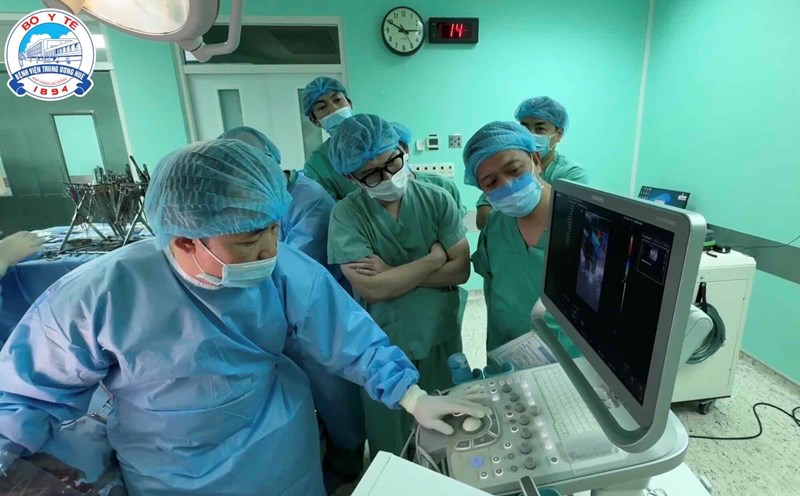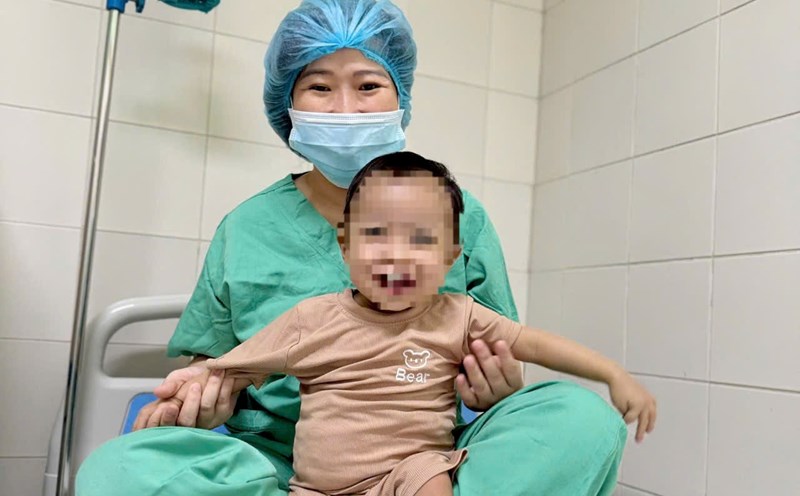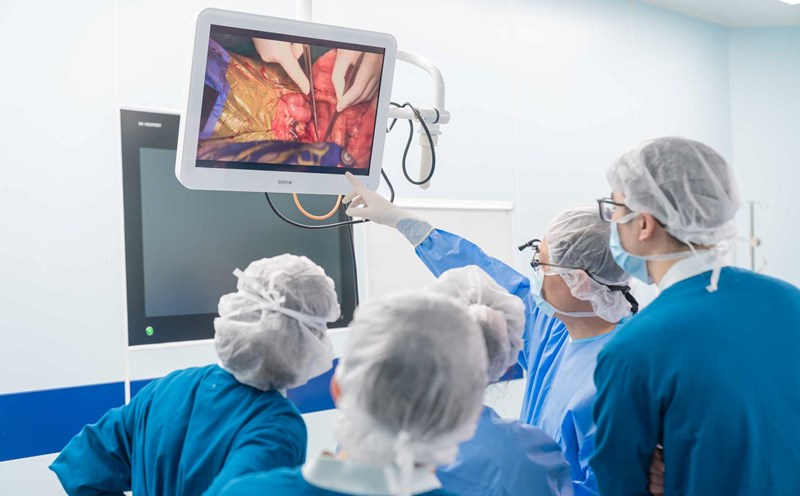Patients whose chances of survival were thought to be ended due to cirrhosis
From an ordinary college student, patient Phi Long (born in 2004) did not expect that his life would turn in a different direction after a long fever last September.
"At first, I only had a mild fever, after taking medicine I felt better, but it recurred every week. I had a persistent fever, lasting hundreds of days. When I could no longer bear it, my family took me to the hospital, Long said.
Long had previously gone to another facility for examination and was diagnosed with high liver enzymes, but had not yet discovered a serious illness. It was not until he was hospitalized in Ho Chi Minh City that doctors determined that Long had late-stage cirrhosis.
When I first started the disease, my health was very weak, I was lying in one place, unable to do anything, patient Long recalled.
Colonel, BSCKII Phung Van Viet - Head of the Department of Anesthesia and Resuscitation, Military Hospital 175 said that when patient Long was admitted to the hospital in an emergency condition weighing 108 kg, he suffered from end-stage cirrhosis with cerebral and liver syndrome and severe respiratory failure. The lungs are almost completely closed, breathing is just enough to maintain life. Deciding whether to have a preoperative dichue to support breathing or not is a very difficult problem: if not deposited, fear of not ensuring safety during the adenoid; but if intervened, the risk of infection can cause the patient to lose the opportunity for the transplant.
According to Lieutenant Colonel, Doctor CKII Ho Ngoc Phat - Head of the Department of Surgery Resuscitation, Hospital 175, the patient, although only 24 years old, had severe liver failure, so treatment was extremely difficult.
The second case to receive a liver transplant was patient Ta Hung Manh (51 years old, Khanh Hoa province), a Lieutenant Colonel in the army, the patient was admitted to the hospital in critical condition, the disease progressed rapidly within just 1 week until he fell into a coma and was admitted to the emergency room. The patient needed immediate surgery because his life was at stake.
Colors of life continue
Faced with the urgent situation of these two special cases, Military Hospital 175 coordinated with experts from Hospital 108 to hold a consultation and plan surgery that night.
For Phi Long patient, after being admitted to the hospital, the patient had an acquaintance from the family of a volunteer liver donor, fortunately all indicators were suitable for the liver transplant.
According to Colonel, Dr. Phung Van Viet, during the surgery, patient Phi Long lost more than 12 liters of blood. The anesthesia and resuscitation team used a high-tech system such as an automatic heart pump and a blood circulation machine to help recover the amount of blood flowing out to filter and truyen back the patient. This method both ensures enough blood and minimizes the risk of transplantation due to external blood transfusion.
A liver transplant is not just a liver transplant. It is a recovery for many organs at the same time: from breathing, circulation, blood clotting, immunity to nutrition. For patients with completely collapsed lungs before surgery like Phi Long patient, the doctor predicted that the infection would almost certainly be post-operative and in fact so. We had to turn off the ventilator many times and then re-insert the air int most easily. But in the end, thanks to antibiotics with the right mechanism, blood filtration and comprehensive support, the patient was able to overcome it, Dr. Phat emphasized.
The case of patient Manh Hung was equally complicated and needed an immediate liver transplant. Fortunately, at that time, the patient's younger brother agreed to donate his liver and all indicators were consistent.
Patient Manh Hung needs an immediate liver transplant. The liver donation of soldiers in the army is unprecedented, so we have a part to do clinical tests to prepare for this transplant within 24 hours, but also do legal procedures to report to the Ministry of National Defense for permission and instructions. And finally, after 24 hours of all legal procedures and medical preparation, patient Manh Hung had a successful liver transplant after 4 hours, said Dr. Ngoc Phat.
According to Dr. Viet, the decisive factor for the success of a liver transplant is not only surgery but also the anesthesia and resuscitation stages. "The patient stepped onto the operating table and put his life in our hands. If anesthesia is unsafe, the transplant will not be possible.
Currently, both patients have recovered and are waiting for discharge date.











